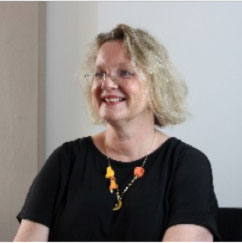WHAT DEFINES A GOOD DIVORCE?
Divorce is often portrayed as a painful contentious process marked by extreme conflict and emotional distress. The notion of a good divorce challenges that narrative by suggesting that the separation can be handled in a way that minimises harm and allows both parties to adapt to their new lives. The collaborative law process is a vehicle for ensuring exactly that.
BUT MY PARTNER WILL NOT AGREE TO ANYTHING
The key to understanding the options open to you in navigating your divorce is that almost all divorces are resolved prior to trial by a negotiated agreement. Therefore, knowing that you will have to agree eventually why not set out with that object in mind and make it as smooth as possible?
The collaborative process is focused on agreement and if your partner signs up to the collaborative process he will also have to focus on agreement. He will be advised by a qualified collaborative layer who is trained in the importance of respectful communication and negotiating from a place of goodwill. Respect and goodwill are both requirements of the process and your partner and his solicitor will be held to them. Goodwill involves transparency in financial matters.
THE END POINT
A financial divorce agreement resolves all economic issues between the parties. It describes how their property is to be divided and resolves issues of child support and spousal maintenance. Done well the document represents the genuine agreement of the parties and both have a sense that the settlement is fair.
FACTORS IN A GOOD DIVORCE
- Effective communication. Honest and open dialogue is essential. A good divorce involves discussing issues like asset division, parenting plans, and future responsibilities with clarity and respect. Effective communication helps in reducing misunderstanding and conflict.
- Mutual respect. This means acknowledging each others perspectives and avoiding derogatory comments or actions that could increase tensions.
- Focus on the children’s welfare. A good divorce includes creating a parenting plan that promotes stability and continuity and should be developed collaboratively.
- Financial fairness. Dividing the assets and liabilities in a way that feels fair to both parties. Transparency about finances and seeking equitable solutions helps avoid lasting resentment and helps each party to move forward with their lives.
All the factors of good divorce are entirely consistent with the collaborative law process where the goal is to reach agreement which both parties view with a sense of justice, goodwill and equity. This does not mean that one or both parties does not feel strapped from time to time but that the disparity between the parties is not glaring or dramatic and neither feels victimised by the other or the process.
Although some may think that this notion of a good divorce is unrealistic or naïve, I think it is within reach of most divorcing couples that are equipped with the right process. Sadness, anger and fear of loneliness is perhaps inevitable, but lasting bitterness is often not the product of the decision to get a divorce but caused by the adversarial court process still used by many people to get divorced.
*he = he or she

Nina Pantzaris – Solicitor
Red Bar Law
nina@redbarlaw.com

